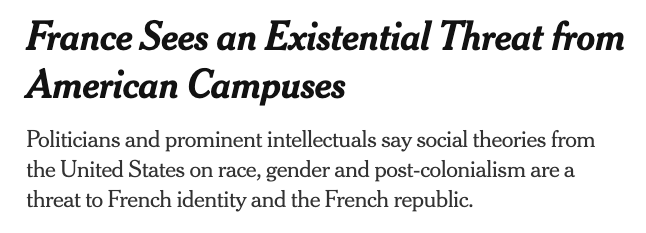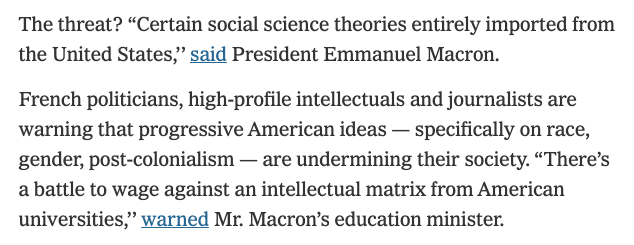
@conor64 I think what would have the greatest impact is reversing the adjunctification trend. Particularly if we take seriously the conjectures about faculty self-censorship. About 75% of the professoriate works off the tenure track, not protected by academic freedom.
@conor64 Another, further afield idea would be to incentivize more collaboration between departments and divisions, such that the viewpoint diversity already present isn't concentrated in disciplinary enclaves. At present I think this has some negative externalities, including ...
@conor64 ...a distorted media image of what academia is like, which focuses on a few lefty depts. while giving e.g. biz schools a (relative) pass and a tendency to form disciplinary 'teams' with distorted impressions of people in other disciplines. No point in viewpoint diversity if...
@conor64 ...no systematic exchange and collaboration.
• • •
Missing some Tweet in this thread? You can try to
force a refresh






